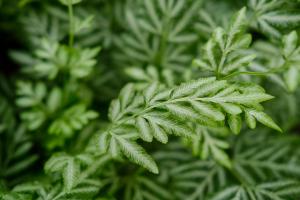Introduction
Water plants, also known as aquatic plants, are plants that grow in water. While these plants may seem insignificant, they play a significant role in the ecosystem. There are many different reasons why water plants are good and in this article, we will discuss some of the most important ones.
1. Oxygen Production
One of the most important reasons why water plants are good is because of their ability to produce oxygen. Just like terrestrial plants, water plants use photosynthesis to convert carbon dioxide and water into food and oxygen. This oxygen is essential for the survival of many aquatic organisms such as fish, insects, and other invertebrates. Without water plants, these organisms would not be able to survive.
2. Nutrient Uptake
Water plants are also good because they help to keep the water clean by absorbing excess nutrients. Nutrients such as nitrogen and phosphorus can build up in water and cause problems such as algal blooms. Water plants absorb these nutrients, preventing them from causing problems in the ecosystem. In addition, water plants can also absorb heavy metals and other pollutants, helping to keep the water clean and healthy.
3. Habitat and Food Source
Water plants also provide an important habitat and food source for many aquatic organisms. Aquatic plants provide shelter and refuge for small fish and invertebrates, which in turn are a food source for larger fish and birds. Water plants can also provide food for certain species of fish and invertebrates. Without water plants, many aquatic organisms would have a difficult time surviving and the ecosystem would be greatly affected.
4. Erosion Control
Another important function of water plants is their ability to control erosion. Water plants have extensive root systems that help to anchor the soil and prevent erosion. Without these plants, the soil in wetlands and other aquatic environments would be much more likely to erode, causing damage to the ecosystem and nearby habitats.
5. Aesthetic Value
Finally, water plants also have aesthetic value. Many people enjoy the beauty of water plants and the way they enhance the natural beauty of aquatic environments. In addition, water plants can be used in landscaping, adding beauty and interest to ponds, lakes, and other bodies of water.
Conclusion
In conclusion, water plants are good for a variety of reasons. From producing oxygen and absorbing excess nutrients to providing habitat and controlling erosion, these plants play an essential role in the health of aquatic ecosystems. In addition, their aesthetic value makes them appreciated and valued by many people. We should continue to protect and preserve these valuable plants for the benefit of ourselves and the ecosystems we depend on.

 how many times do yo...
how many times do yo... how many planted tre...
how many planted tre... how many pine trees ...
how many pine trees ... how many pecan trees...
how many pecan trees... how many plants comp...
how many plants comp... how many plants can ...
how many plants can ... how many plants and ...
how many plants and ... how many pepper plan...
how many pepper plan...
































